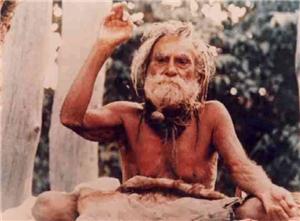|
Spirituality:

|

|
The Need of a Guru - Part 2
|
|
The importance of finding a guru who can impart transcendental knowledge (vidyā) is emphasised
in Hinduism. One of the main Hindu texts, the Bhagavad Gita, is a dialogue between God in the
form of Krishna and Arjuna a nobleman. Not only does their dialogue outline many of the ideals
of Hinduism, but their relationship is considered an ideal one of Guru-Shishya. In the Gita,
Krishna speaks to Arjuna of the importance of finding a guru:
Acquire the transcendental knowledge from a Self-realized master by humble reverence, by sincere
inquiry, and by service. The wise ones who have realized the Truth will impart the Knowledge to you. [13]
In Hinduism, the guru is considered a respected person with saintly qualities who enlightens the mind
of his or her disciple, an educator from whom one receives the initiatory mantra, and one who instructs
in rituals and religious ceremonies.
|

|
|
The Vishnu Smriti and Manu Smriti regard the teacher, along with
the mother and the father, as the most venerable gurus (teachers) of an individual.
Some influential gurus in the Hindu tradition were Adi Shankaracharya, Shri Chaitanya Mahaprabhu,
and Shri Ramakrishna. Other gurus who continued the yogic tradition into the 20th century include
Shri Ram Chandra, Shri Aurobindo Ghosh, Shri Ramana Maharshi, Sri Chandrashekarendra Saraswati
(The Sage of Kanchi), Swami Sivananda, Swami Chinmayananda and A. C. Bhaktivedanta Swami Prabhupada.
See also the list of Hindu gurus.
|

|
In Indian culture, a person without a guru or a teacher (acharya) was once looked down upon as being
an orphan and an unfortunate one. The word anatha in Sanskrit means "the one without a teacher".
An acharya is the giver of gyan (knowledge) in the form of shiksha (instruction).
A guru also gives
diksha initiation which is the spiritual awakening of the disciple by the grace of the guru. Diksha
is also considered to be the procedure of bestowing the divine powers of a guru upon the disciple,
through which the disciple progresses continuously along the path to divinity.
There is an understanding in some sects that if the devotee were presented with the guru and God,
first he would pay respect to the guru, since the guru had been instrumental in leading him to God.
[14][15] Gurus are said to be greater than God because they lead to God.[16]
Some traditions claim
"Guru, God and Self (Self meaning soul, not personality) are one and the same. In this context,
saints and poets in India, have expressed their views about the relationship between Guru and God:
|
|
|
Kabir
" Guru and God both appear before me. To whom should I prostrate?
I bow before Guru who introduced me to God. "
Brahmanand
" It's my great fortune that I found Satguru, all my doubts are removed.
I bow before Guru. Guru's glory is greater than God's. "
Brahmanda Purana
" Guru is Shiva sans his three eyes,
Vishnu sans his four arms
Brahma sans his four heads.
He is parama Shiva himself in human form "
Adi Shankara, widely considered one of the most important figures of Indian intellectual
history, begins his Gurustotram or Verses to the Guru with the following Sanskrit Sloka,
that has become a widely sung Bhajan:
" Guru Brahma, Guru Vishnu Guru Devo, Maheshwara.
Guru Sakshath Parambrahma, Tasmai Shri Gurave Namaha. "
i.e. Guru is creator Brahma; Guru is preserver Vishnu; Guru is also the destroyer Siva
and he is the source of the Absolute. I offer all my salutations to the Guru.
|
|
The guru-shishya tradition
The guru-shishya tradition is the transmission of teachings from a guru (teacher, गुरू) to a 'śiṣya'
(disciple, िशष्य). In this relationship, subtle and advanced knowledge is conveyed and received through
the student's respect, commitment, devotion and obedience. The student eventually masters the knowledge
that the guru embodies.
The first criterion, according to the Vedic scriptures, is the quality of the words the teacher speaks.
(Even a fool may be highly esteemed--until he speaks.) In the Bhagavad-gita Lord Sri Krishna, the original
spiritual master, tells His disciple Arjuna, "The self-realized soul can impart knowledge unto you because
he has seen the truth." In other words, a genuine guru must have realized the Absolute Truth, the Personality
of Godhead, and he must be able to impart this truth to his disciple, thus freeing him (or her) from repeated
birth and death.
|

|
"It is the mind that makes one wise or ignorant, bound or emancipated."
|